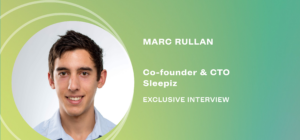Article
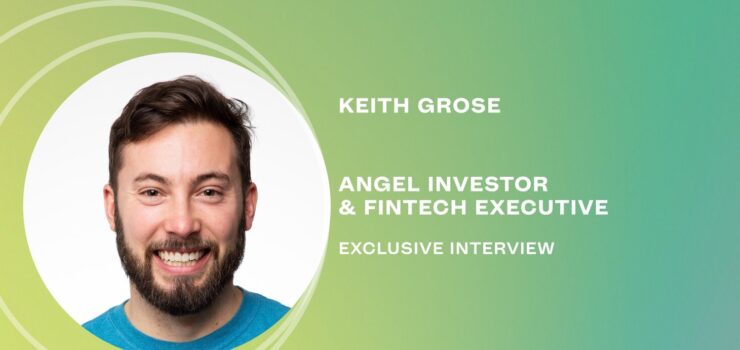
Catalyzing Fintech Innovation: Insights from Keith Grose, Angel Investor & Fintech Executive
In the rapidly evolving world of fintech and crypto, where innovation is reshaping the financial landscape, we had the privilege to sit down with Keith Grose, a fintech executive and most recently the Chief Operating Officer at Sequence. Sequence is a forward-thinking B2B fintech company that is revolutionizing the way tech scale-ups manage their billing processes, facilitating efficient revenue collection through its cutting-edge quote-to-cash platform.
In this engaging interview, Keith takes us on a journey through his extensive background, from his early days contributing to Google Wallet and Google Pay to his pivotal role in Plaid’s European expansion. We explore his passion for technology’s transformative potential and his deep commitment to redefining financial infrastructure. Keith’s experience, which spans from early crypto startups to established finance giants, provides unique insights into the fintech and crypto world.
Join us as we dive into Keith’s remarkable journey and his vision for the future of financial technology and its potential impact on global financial freedom.
1. Can you please provide an overview of your journey in the fintech and crypto world? Additionally, could you elaborate on your role as COO at Sequence and the responsibilities it entails?
I’m Keith Grose, a fintech operator and most recently the Chief Operating Officer at Sequence, a B2B fintech tackling billing challenges for tech scale-ups by streamlining the quote-to-cash process, involving efficient revenue collection.
My journey began in the USA where I was born, where I started my career at Bain & Company in the Bay Area before moving tot Google before its transition to the Alphabet structure. In my early years at Google, I joined the development of fintech products – Google Wallet and Google Pay. Later on, I participated in their hardware division, launching products like Pixel phones and Google Home speakers.
I just fell in love with how much technology can transform the way people manage and move money. And, over time that developed into being obsessed with the way that businesses manage and move money, too.
This led me to fully commit to fintech where my tech enthusiasm, economics background, and financial interests blended perfectly. I explored the landscape from early crypto startups to established finance giants, encountering Plaid on the brink of their Series C funding round.
Plaid pioneered seamless integration of bank accounts with fintech apps, coinciding with the emergence of Coinbase and Robinhood. Their challenge was rapid user onboarding and swift fund transfers for instant trading. This resonated with me, prompting me to join to help lead Plaid’s European expansion. My British heritage aligned with this change, and over four years, I grew Plaid’s European presence, serving as the general manager of the UK.
This experience taught me how to adapt products to diverse cultures and methodologies while building a successful business. It fueled my affinity for early-stage ventures. Subsequently, I joined Sequence, a seed-stage startup supported by Andreessen Horowitz, focused on redefining financial infrastructure for the CFO.
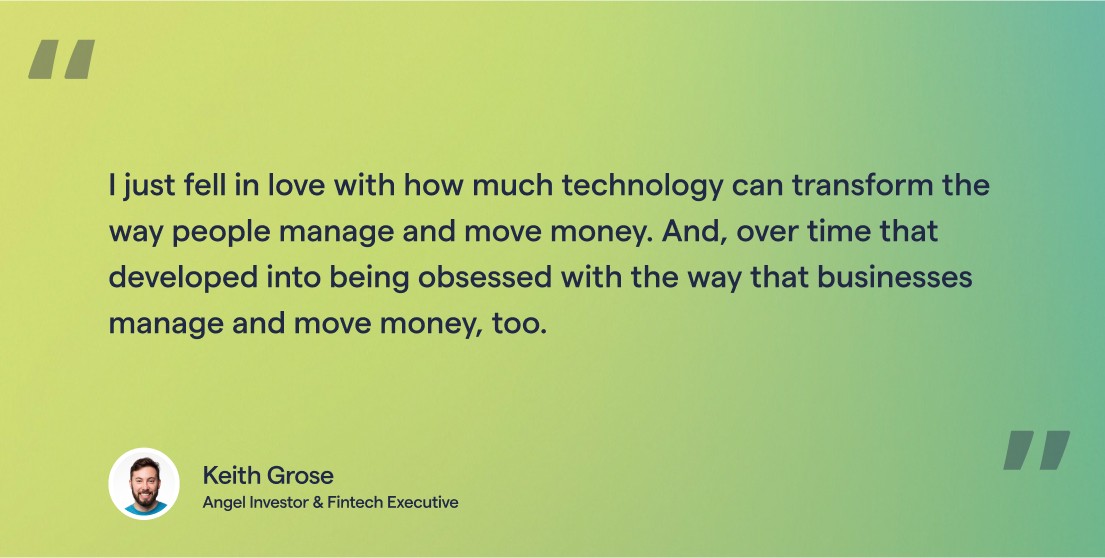
2. Could you offer an overview of Sequence and its role within the fintech ecosystem? Specifically, how does Sequence support B2B scaleups with their billing and pricing processes?
Absolutely. Sequence, established in late 2021, was co-founded by Riya Grover and Eamon Jubbawy, both experienced entrepreneurs. Notably, Eamon previously founded Onfido, a prominent KYC startup, while Riya had built Feedr, a successful food tech company. Both of them in their prior companies had experienced the difficulty of managing revenue, and billing and invoicing customers as a B2B business.
Often, in such high-growth scale-ups, manual processes are initially employed and then, as the company expands rapidly, more personnel are allocated to manage these processes rather than seeking software solutions.
Herein lies the focus of Sequence: developing software that addresses this very issue, aiding technology companies in effectively quoting and invoicing their customers. The primary problem that Sequence tackles involves becoming a reliable repository of pricing, product, and usage data, particularly for businesses utilizing a sales-led model. This is achieved by integrating with CRM systems like Salesforce or HubSpot, along with accounting platforms such as Xero, QuickBooks, or NetSuite. By seamlessly importing usage data, Sequence offers a comprehensive dashboard that streamlines the tracking of product usage and customer invoicing. This not only saves a significant amount of time but also transforms these activities into strategic tools.
With this platform, companies can determine optimal moments for upselling customers, identify those at risk of churning, and gain insights into their business performance midway through the month or cycle. Currently headquartered in London, Sequence’s reach extends to serving customers throughout the UK, Europe, and the United States.
3. Many startups encounter challenges in finding product-market fit and expanding internationally. What advice do you have for startups aiming to broaden their reach and achieve sustainable growth?
In essence, the key to success lies in recognizing the pull from your customers. When they demand your product or increase usage, it signifies value. Start by ensuring your product holds actual value, especially considering the current crisis in the market. Value isn’t just usage.This aspect is often overlooked; creating something loved is one thing, but a viable business underneath where people are willing to pay for what you are building is essential.
In Europe, building a venture-backed tech company with a goal of achieving a unicorn-level outcome (reaching 100 million in revenue) requires a multi-country, multi-market approach. The key question is when and how to expand in this manner. For early-stage founders, my advice is to first solve the problem within your expert-driven local market before considering international expansion.
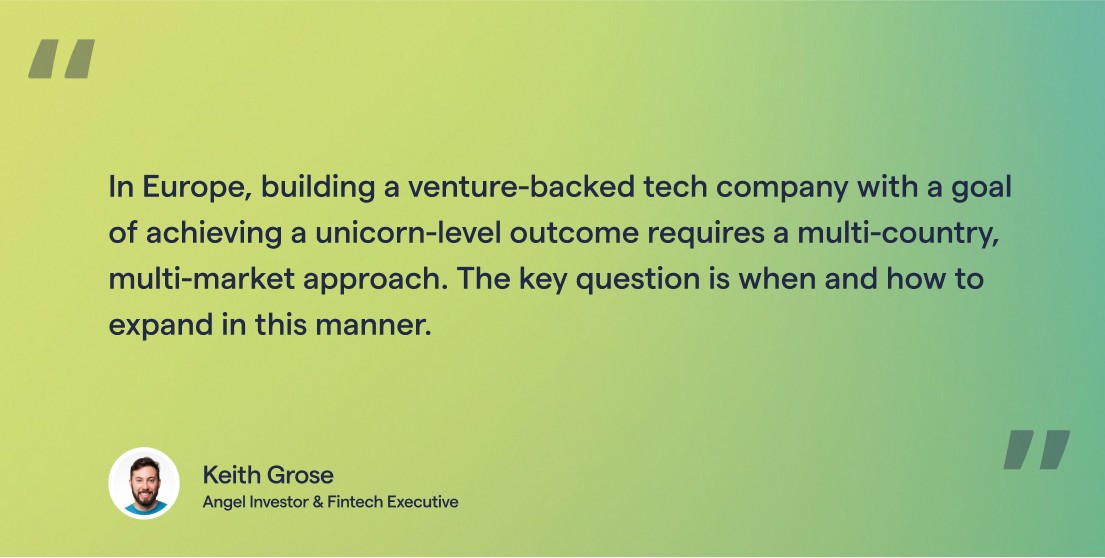
Going international can be distracting, requiring product adjustments due to language nuances, naming, and payment systems. Avoid this trap by establishing product-market fit locally before expanding globally. When expanding, consider your expansion model – fully remote, landing party, or pod.
In a fully remote model, launch while maintaining a central team; benefits include team cohesion, but drawbacks include losing touch with local nuances and potential slower growth. Alternatively, the landing party model involves on-ground local teams, especially in B2B settings, while keeping product engineering centralized. The pod model establishes an independent mini-company within your organization, solely focused on the new market.
The success of these models depends on your business specifics. For instance, Plaid transitioned from landing party to the pod model, establishing Europe as a standalone unit. These are the challenges and considerations for international expansion that most European scale-ups eventually confront.
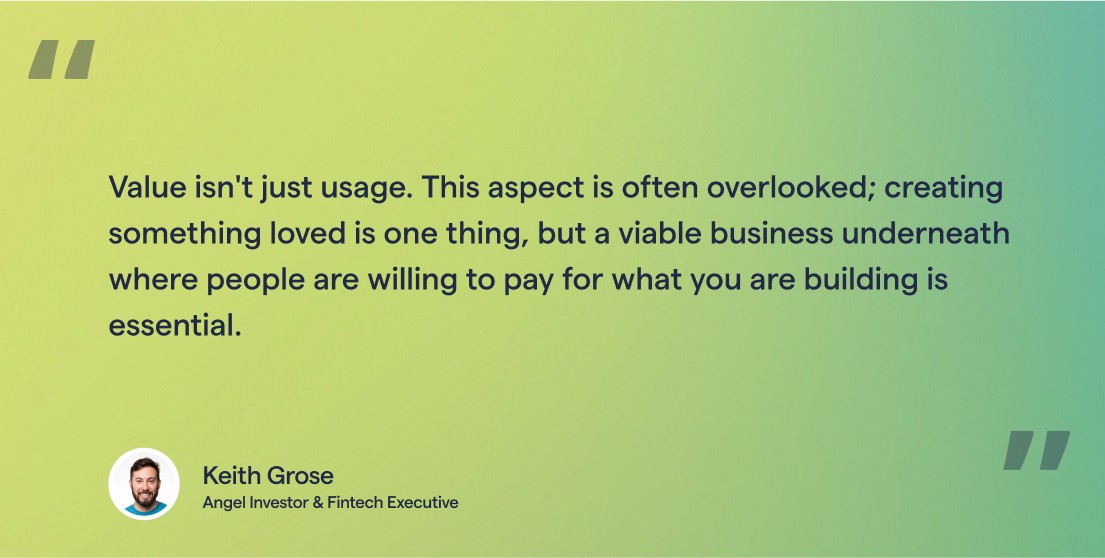
4. What qualities do you look for in startups and scaleups seeking investment?
As an angel investor, I focus on pre-seed and seed, the very earliest stages of company formation, due to the value I can offer founders and the crucial pain points that emerge at those stages. It’s a bet on the founder more than the initial idea, considering that products and markets evolve. Startups rarely stick to their initial plans. I assess founders for their intellect, curiosity, commitment, and unique skills.
So are they not just a passerby? Are they really committed to building a company? They have to be able to make it through the hard times and the times that aren’t fun.
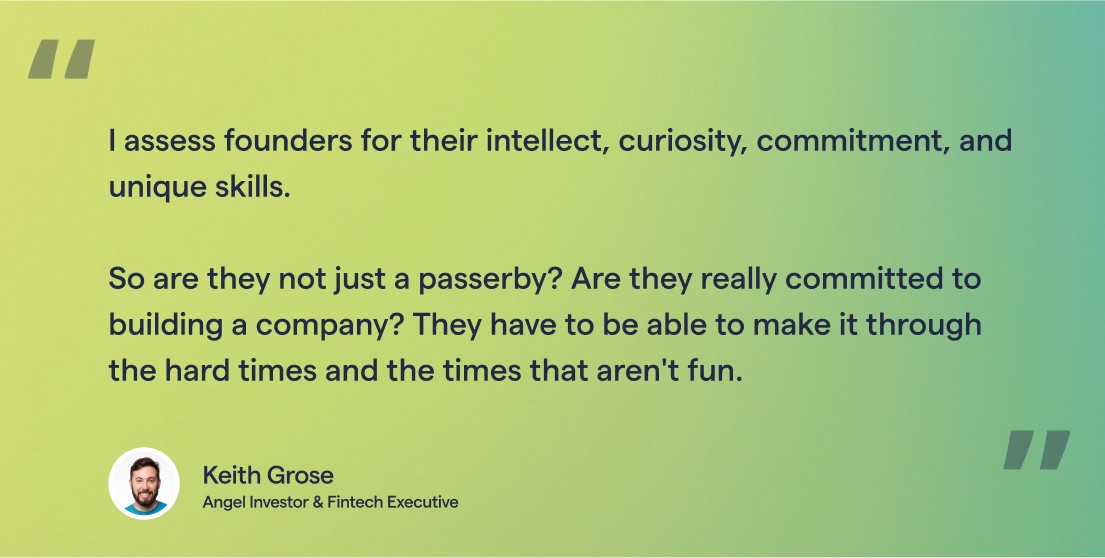
Those who identify problems and build solutions stand out. Intellectual curiosity and passion are crucial due to the inherent challenges of building startups. Grit is also essential for enduring tough times; you need to be really gritty as well to be a successful founder. I evaluate ideas and markets, yet experience taught me to prioritize founders over my market perceptions, having witnessed surprising successes and failures. Trusting the founder’s qualities has become my guiding principle.
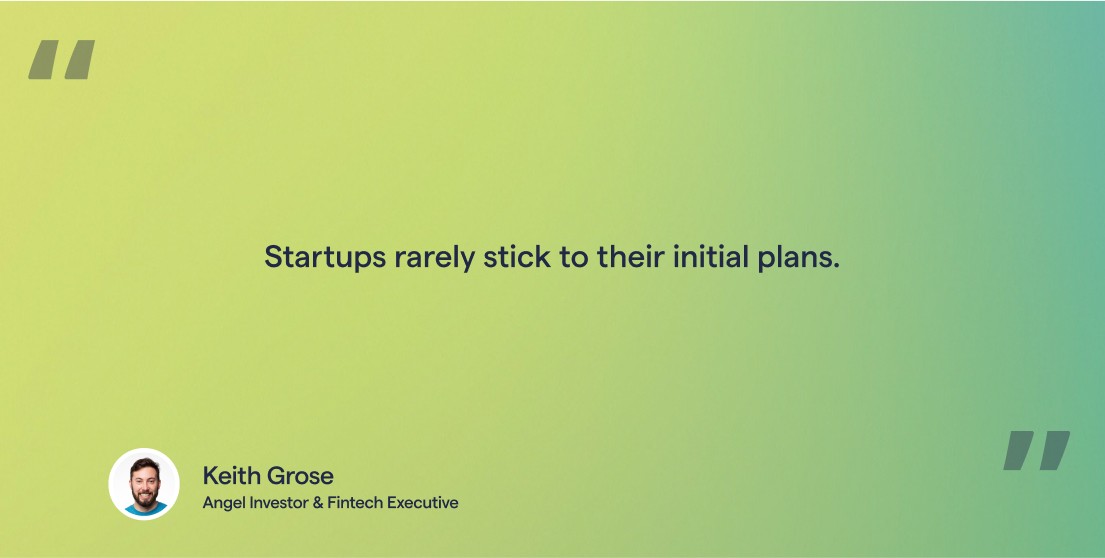
5. Considering that startups often face resource and know-how constraints, some opt to collaborate with external partners. What is your opinion on the balance between in-house development and partnering with expert companies for consultancy and outsourcing? Could you elaborate on the strategy that Sequence employs in this regard?
In my opinion, this can vary a lot across companies. I see it as a matter of core competency—tasks that align with your expertise should be handled internally, while non-core tasks can benefit from external assistance. The suitability hinges on your business type and product nature. For instance, in Sequence and Plaid, infrastructure was our focus and hiring the backend engineering team has been pivotal for product success. For aspects like websites, marketing, or recruiting, where external expertise might be sought, agencies or contractors could be valuable.
A hybrid model, like a front-end contractor, integrating with the team while not employed full-time, often works well for cultural alignment. In essence, my belief as a leader, and one shared with fellow founders, is to internally manage core competencies while scrutinizing cost and benefit for non-core tasks—deciding between hiring, developing capability, or outsourcing. Our business approach extends this, helping companies prioritize their core offerings and considering external solutions for non-core tasks, like billing. Applying this rationale to digital products is analogous; it all depends on your business type and dynamics. The core vs. non-core distinction shapes my perspective.
6. From your perspective, what are the most exciting tech trends in the financial sector that we should keep an eye on in the near future?
In the current landscape of 2023, one evident trend is AI, although it’s become a buzzword, its potential across various sectors, including finance, is being explored. The realm of personal and business finance offers opportunities to utilize AI for optimizing money management and simplifying manual tasks through automated agents. Although the ultimate destination of these ideas remains unclear, continuous innovation is expected in the fintech space.
Another aspect is money movement—despite the year being 2023, the high cost and time-consuming nature of cross-border transactions persist. Efforts to address this are underway, such as PIX in Brazil and UPI in India, as well as governmental and technological changes like crypto and stablecoins. Simplifying global money transfers to the ease of emailing could catalyze economic growth globally. Personally, I’m enthusiastic about these changes and their potential impact on the future.
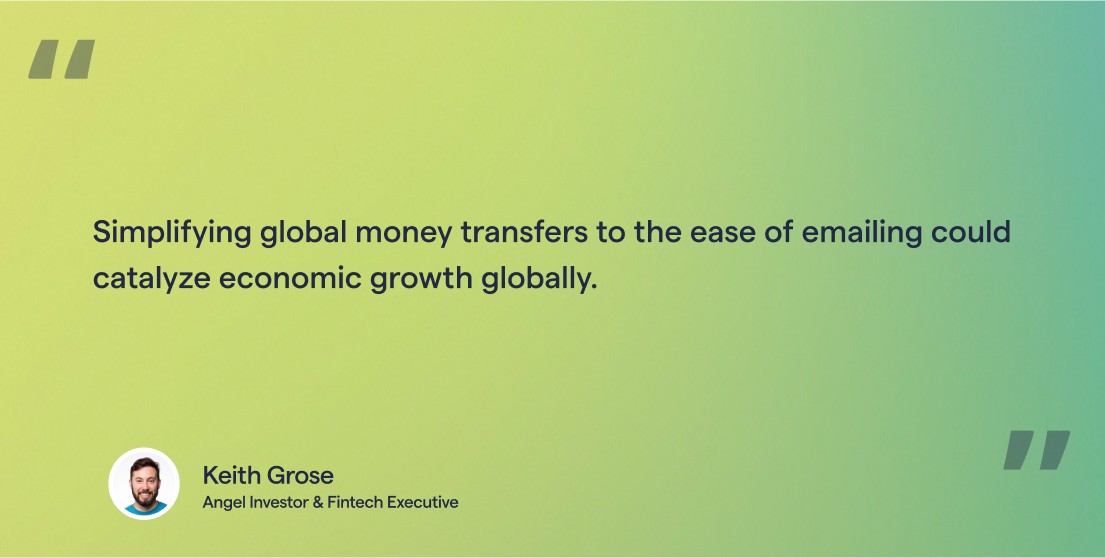
7. As an advocate of financial freedom, how do you see fintech and crypto contributing to achieving financial freedom for everyone? In this broader vision, what specific role does Sequence play?
Certainly, it’s a compelling question. Technology has the potential to greatly enhance individuals’ financial well-being. My personal understanding of personal finance largely came from self-teaching using online resources, apps, YouTube, and similar platforms. Education stands out as the primary means through which technology can positively transform financial lives.
Furthermore, a variety of tools now empower people to manage their financial affairs effectively, whether for individuals, families, or businesses. This toolkit has expanded significantly over the past 5 to 10 years, simplifying the process of achieving financial health.
While Sequence focuses on enhancing businesses’ comprehension of customer usage and payment, there are other commendable tools to enhance personal financial freedom.
We’re still in the early stages, particularly exciting is the technology’s impact on emerging markets, where people directly transition from cash-based systems to mobile-based tools, skipping the legacy financial infrastructure seen in more established economies like the US, UK, and Europe. Witnessing this leapfrogging progress in other markets is truly captivating.
About Keith Grose
Keith is a startup operator with a background in fintech, crypto, and hardware. He is currently Non-Executive Director at Zero Hash UK and works as a consultant / fractional fintech executive. Keith is also an active angel investor focused on fintech/crypto and B2B SaaS. He was most recently COO at Sequence HQ, a B2B fintech backed by a16z. Prior to that, Keith was Head of UK for Plaid where he led their European expansion and helped launch the first crypto/web3 products. Keith started his fintech career working at Google on GPay, Google Wallet and first-party hardware products from their US headquarters. He is currently based in London and can be contacted via his website keithgrose.com.
About Author
Elena Dimoska is a communications & marketing enthusiast with great passion to communicate value in a way that reinforces business success beyond revenue growth.
One of her missions as part of TrueNode is to help more well-known brands leverage innovation to make impact. For that purpose, Elena is interviewing innovators from well-established brands across Germany and Europe.






